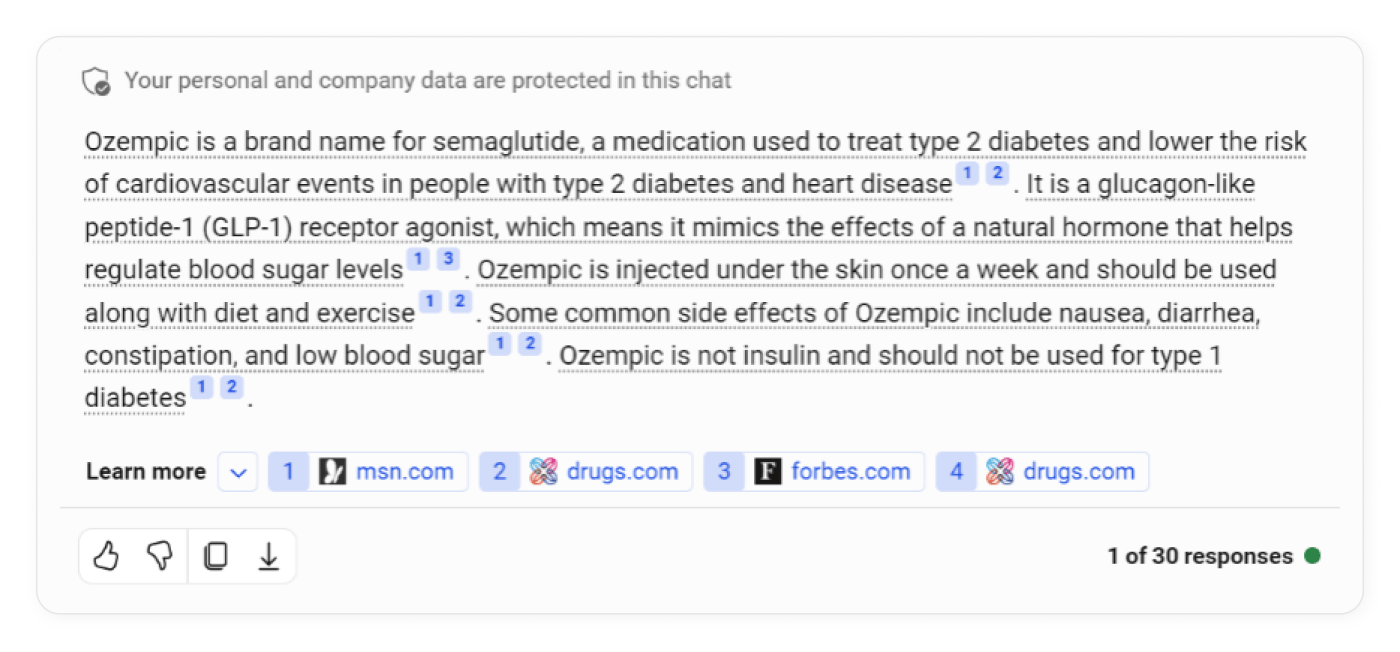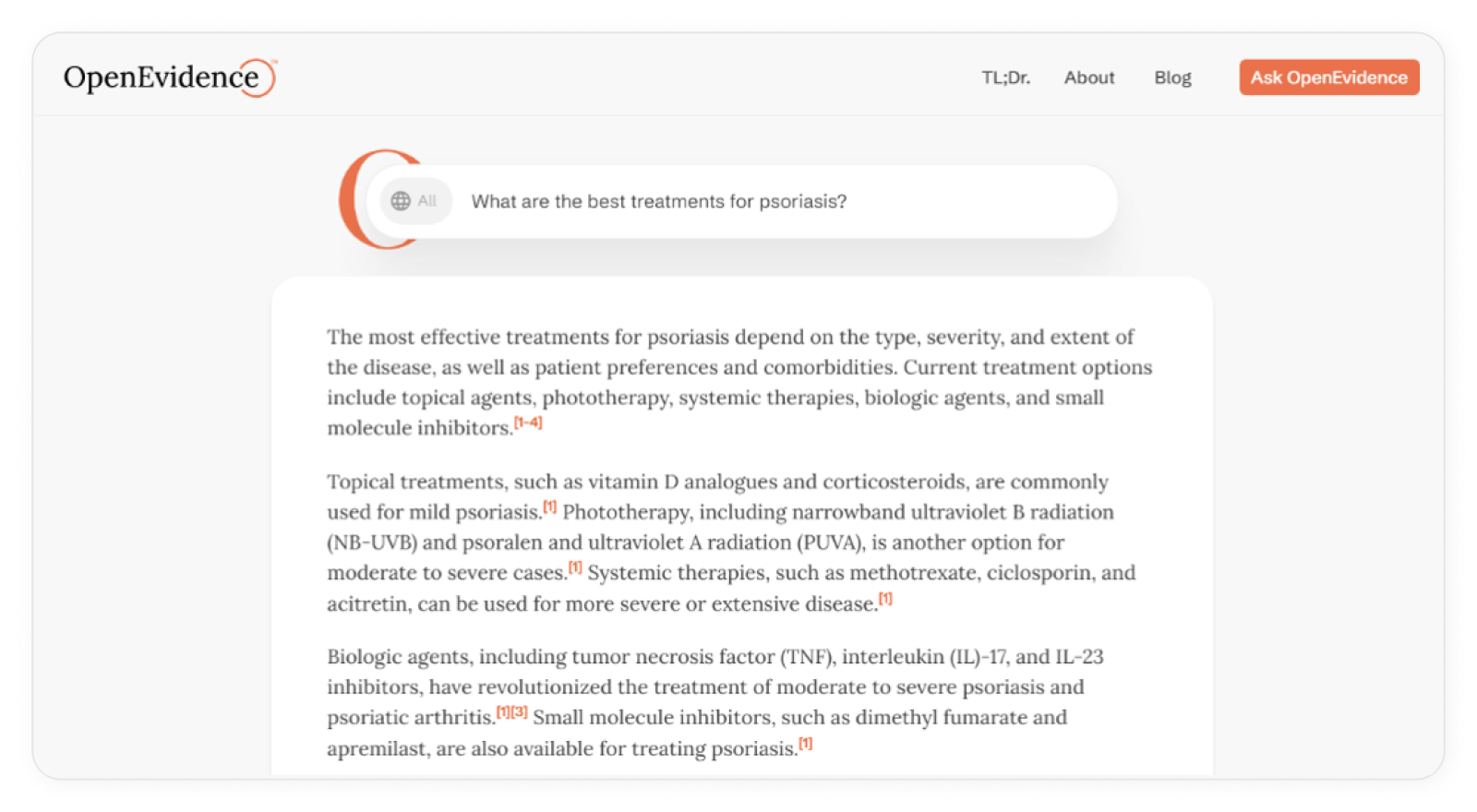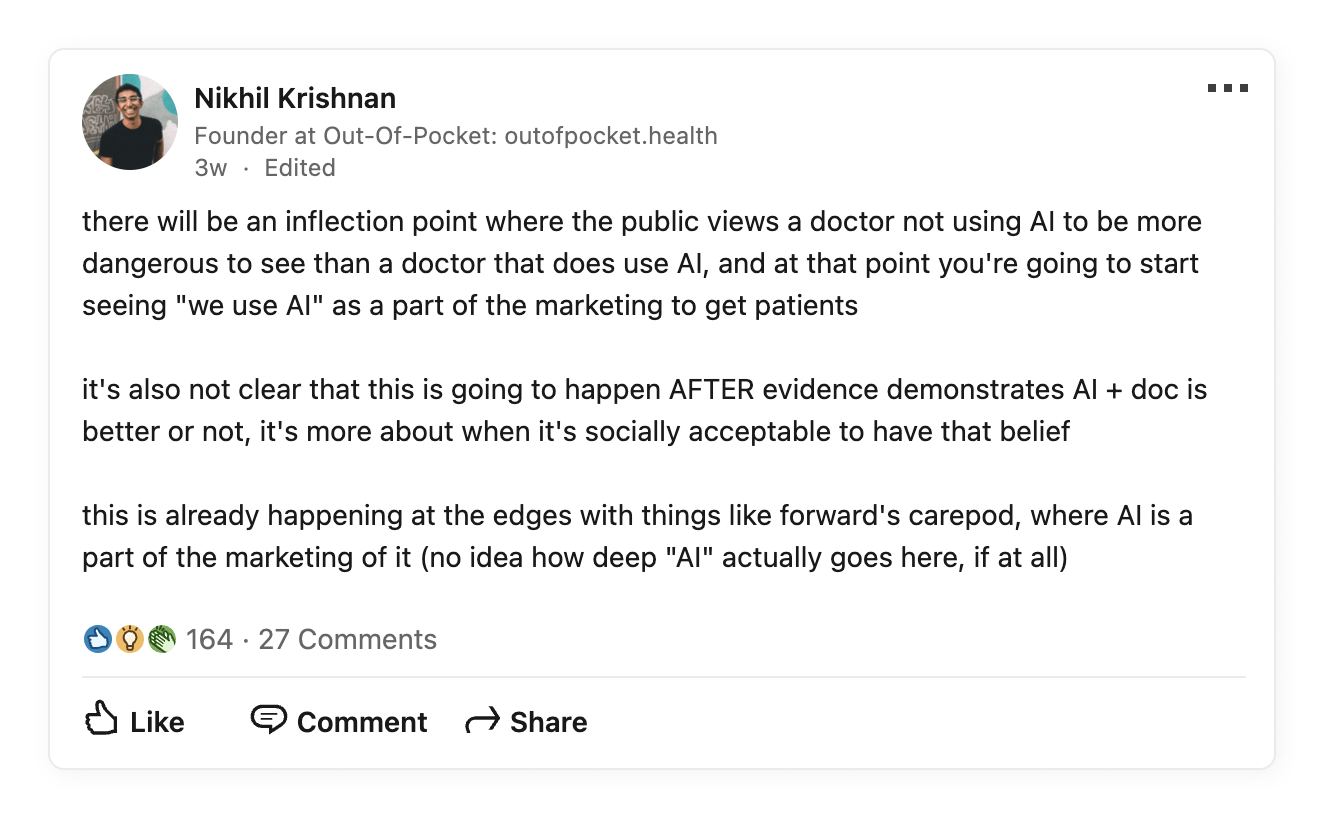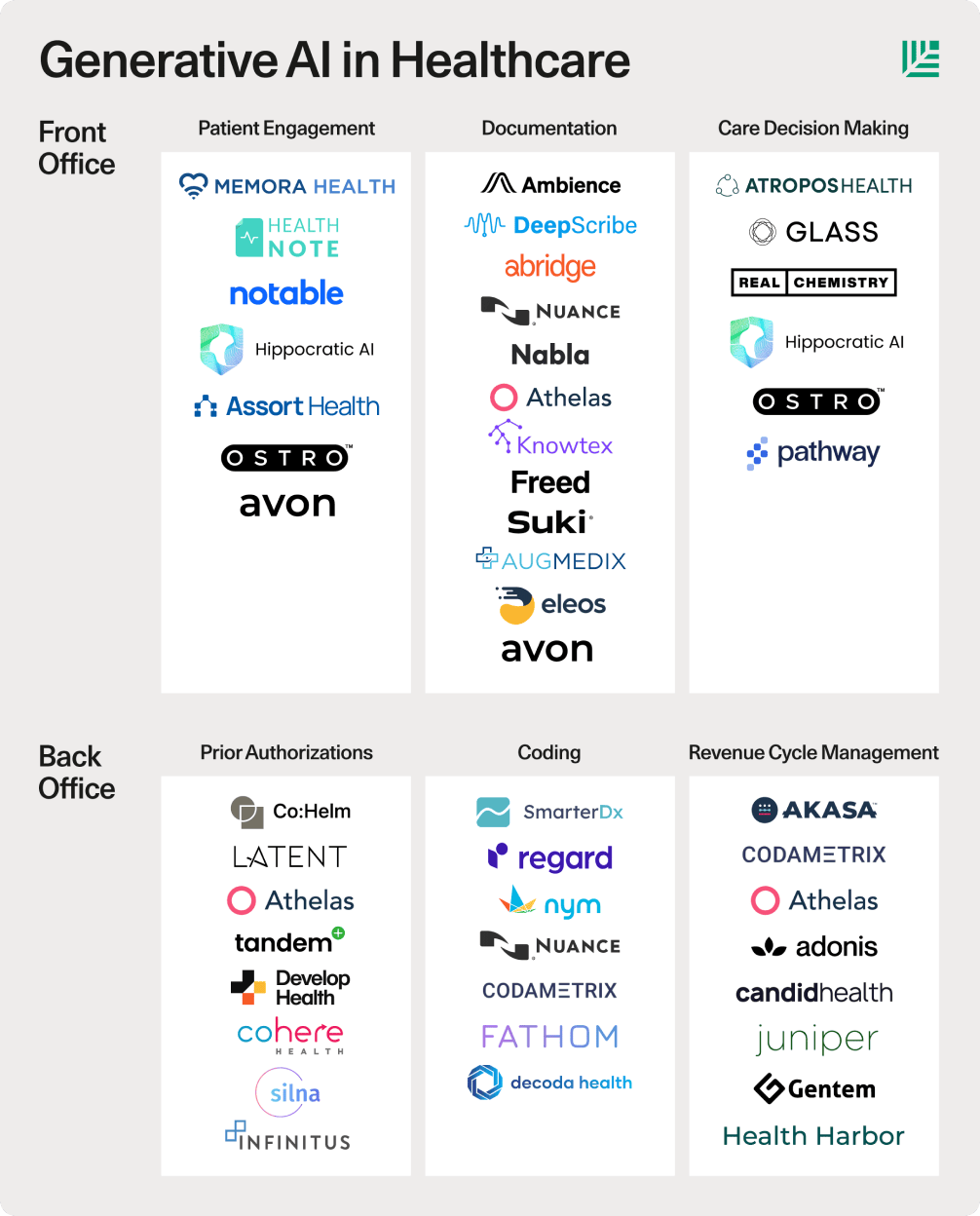By: Lynda Gordon, EVP, Audience & Insights, Dentsu Health; Michael Gunn, SVP, Products & Design, Dentsu Health; Michael Agnello, VP, Growth, Dentsu Health
Finally, the use of generative AI in healthcare may just be the catalyst to deliver on the vision of improving patient lives through better health outcomes.
Total global spending on healthcare is expected to exceed $11 trillion in 2024 (World Health Organization), with the global pharmaceutical industry accounting for $1.5 trillion, or 12%, of this total (Statista). Virtually every major pharmaceutical company has a mission centered around delivering life-saving therapies that improve patient lives, with billions invested into research, production, and distribution of drugs to deliver upon that vision. However, the industry faces inefficiencies and administrative burdens across the drug lifecycle, from R&D to patient access and adherence. With healthcare spending comprising up to 40% of GDP in the top 10 global markets, the introduction of efficiencies gained through the strategic use of AI technologies in healthcare may be just what the doctor ordered to deliver upon those improved health outcomes.
Most public awareness of the use of AI in healthcare centers is around advanced search algorithms, like those in Chat GPT, to help interested parties find relevant content about medical conditions and available therapies. At the consumer level, an AI facilitated inquiry about diabetes treatments, for example, would typically yield a response like this:

Alternatively, a physician inquiry that leverages AI toolsets like Open Evidence, which requires a physician login, may generate a more robust response like this:

While these search and research platforms create value by collecting and managing vast amounts of information, they do not address all the inherent challenges in healthcare.
We believe that we need to review the use of AI in healthcare within the framework of the drug lifecycle, as shown below. Each stage is a potential roadblock where the science that has the potential to improve lives may fail to reach the intended patient audience, driving up the total cost of healthcare investments and reducing the potential health outcome benefits (see also American Pharmaceutical Review).

We explore the role of generative AI in healthcare in three primary areas that offer the highest potential for reducing the inefficiencies in the system:
- Drug research and development, including clinical trials
- Education
- Access
AI in Life Sciences Research
Shockingly, 90% of all novel drug therapies fail at the clinical trial stage (The Conversation, 2022). Drug development over the last 10 years has focused increasingly on “biologics” where the drug uses elements of biologic tissues or cells to produce drugs that combat malfunctioning biologic processes in the human body. The most visible category of these drugs today is in the “auto-immune” family where biologics are used to manage immune system response that creates diseases such as severe atopic dermatitis, ulcerative colitis, and rheumatoid arthritis. Vaccines are also biologics and many new cancer therapies are using biologics as well.
Generative AI has vast applications for creating millions of simulations of biologic responses during the drug development research to potentially avoid the failures that may occur during clinical trials. AI-based simulations will never replace human clinical trials in the drug lifecycle, but they serve the critical function of enabling the learning of biologic-response through exhaustive data testing. A 10% reduction in the failure rate of clinical trials would translate to an annual savings of $500 billion to $1 trillion in R&D costs and potentially speed commercialization by 3x-4x (Dentsu Health Pipeline Analysis, 2023). Clearly this is an area ripe for AI investment which is estimated at roughly $7 billion for life sciences (raised for start-ups in Life Sciences R&D technologies since 2020, per AI Checkup Substack).

AI for Education – HCP & Patient
Beyond the core “search” functionality that is enabled through AI-powered tools, one of the key benefits from AI is the ability to process large amounts of data to understand how to support diagnosis and guidelines for treatment. Some market data suggests that patients have become increasingly suspicious of physician diagnoses and even look to external data sources to try to conjure up self-diagnosis support. In fact, 65% of individuals under age 35 state that they believe that they are more qualified to make a diagnosis from internet research than their primary care physician (Edelman Trust Barometer, February 2023). This could be potentially dangerous and most likely confusing for patients who do not have the medical insights or experience to interpret this information. Ironically, one solution to this may become the highly visible use of AI tools by physicians during patient consultations, as postulated by Nikhil Krishnan on LinkedIn:

This is where we will see continued use of AI-supported research tools that may reside on Electronic Medical Records or simply on mobile devices via apps that support patient consultation.
AI for Access – Office Support
While less buzzworthy than some of the research tools, there are compelling reasons for investment in AI tools that reduce the inefficiency of the medical office process (and subsequently decrease operational costs). In healthcare, insurance approvals (“payor approval”) and billing processes currently represent a disproportionate level of cost burden in the healthcare system relative to other industries (Econofact, 2018). A large suite of AI tools are being developed with investment dollars to literally apply learning and generative processes to improve the office functions in healthcare.
The office burden in healthcare also includes the arduous amount of documentation required to support patient treatment. This includes note taking, prior authorizations, documentation of patient response to selected therapies and review of reimbursement and benefit options. While these functions have always been supported by traditional IT infrastructures, it is the generative learning and ability to create documentation which differentiates these tools.

(Image source: Sequoia Capital)
Looking toward the future
There will continue to be billions of dollars of investment in Generative AI in healthcare that may create efficiencies that will promote broader success of global health outcomes. It’s important, however, to consider AI across the entire healthcare ecosystem. Applications at the patient education or audience marketing level are truly the top of the funnel.
Learn more or get in touch with Dentsu Health at dentsuhealth.com



